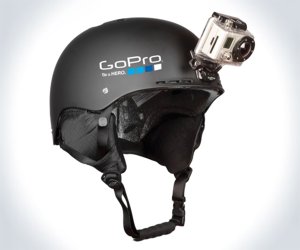Description project
 There is an urgent need for engineers to help achieving the energy transition goals. An important bottleneck in vocational education of (future) engineers is the lack of integration between learning at school (theory) and the learning at the workplace (practice). Technology can help to bridge this gap. We will investigate the integration of action camera technology (e.g., GoPro) and teaching methods to connect teachers, supervisors, and students, to facilitate knowledge sharing and feedback, and help the students become skilled, reflective, self-regulated, lifelong learners and workers.
There is an urgent need for engineers to help achieving the energy transition goals. An important bottleneck in vocational education of (future) engineers is the lack of integration between learning at school (theory) and the learning at the workplace (practice). Technology can help to bridge this gap. We will investigate the integration of action camera technology (e.g., GoPro) and teaching methods to connect teachers, supervisors, and students, to facilitate knowledge sharing and feedback, and help the students become skilled, reflective, self-regulated, lifelong learners and workers.
Expected outcomes
This project aims at developing and implementing evidence-based training instructions, materials, and methods, that can be directly applied in the learning communities. The research components in this project aim at assessing, supporting and enhancing the effectiveness of the methods and materials. The effects will be investigated in schools and field setting. The instructions, guidelines, methods, and materials will be made available to education and the industry, also after the project has been completed.
involved researchers
Dr. Bas Kollöffel - project leader and contact person
Dr. Elwin Savelsbergh - Utrecht University of Applied Sciences
Sietse Brands, MSc. - PhD candidate
Pleun Driessen, MSc. - PD Eng candidate
Anna Verdoes - researcher - Utrecht University of Applied Sciences
Duration of the project
September 2020 – August 2024
Funding and partners
The project is funded by the Netherlands Initiative for Education Research (NRO), Koning Willem I College, OTIB, BAM Infra Energie & Water, Alliander, Baas, Stichting BLEI, Bouwend Nederland, GOA Leidingtechniek, O&O fonds Netwerkbedrijven, Heijmans, Visser & Smit Hanab, and Volker Wessels. Other partners are Utrecht University of Applied Sciences (HU), TU Delft, Consortium Beroepsonderwijs, and Stichting Samenwerking Beroepsonderwijs Bedrijfsleven (S-BB).
project website
Not applicable
